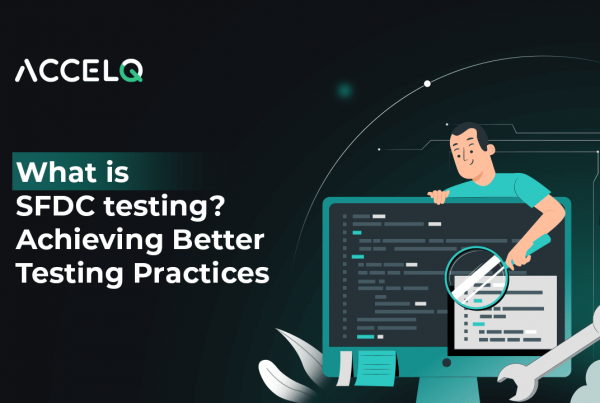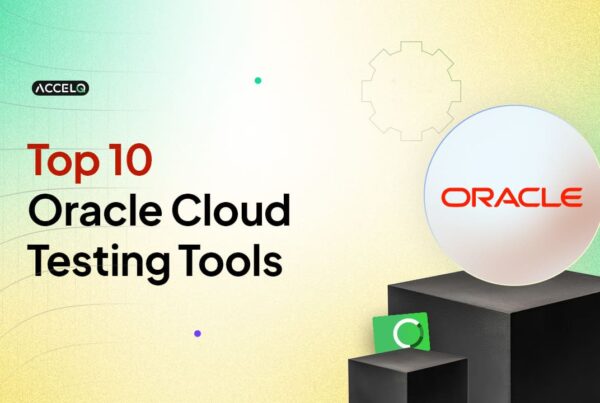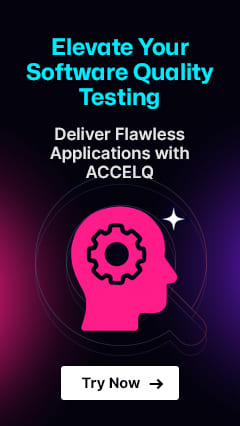Should you choose an Open-Source Framework for Oracle Cloud Testing?

Oracle improved its cloud infrastructure for faster performance, lower costs, better security, scalability, and compatibility for business tasks. However, the biggest challenge is effective testing of Oracle applications to ensure keeping up with quarterly updates.
Could open-source frameworks be the solution to the testing challenges of Oracle Cloud? While traditional test automation tools have their uses, they may not fully align with the unique requirements of Oracle Cloud. However, open-source frameworks, with their potential for customization, could be a game-changer, allowing you to tailor your testing to the specific needs of Oracle Cloud. Let's explore this further.
Using Open-Source Frameworks for Oracle Cloud Testing:
The choice of the right tool for test automation is a critical factor in the successful implementation of enterprise applications like Oracle. Testing the entire Oracle ecosystem, with its many diverse components, is a key to successful testing.
Using open-source automation tools for Oracle can significantly improve database management, development, and administration processes. These tools offer features and capabilities to streamline and simplify various tasks, saving time and effort while improving efficiency. Further:
- They are cost-effective and flexible to some extent.
- No recurring licence or maintenance fees exist.
- A large community of users for support
- It avoids vendor lock-in hassles
- Developers can write UI tests using Oracle JDeveloper
- Flexibility to perform parallel testing without hassles.
- Some open-source frameworks also have built-in automation components that ease the test design and setup process.
Limitations of Open-Source Frameworks in Oracle Cloud Testing
Oracle test automation can reduce business risks and costs and save time and resources. However, open-source frameworks face challenges with technology compatibility, such as issues with integrating with certain Oracle Cloud features or difficulties in adapting to new Oracle updates. Allow us to list the limitations-
| Maintenance and Updates | Rely on community contributions. There might be delays in updates and maintenance, potentially leading to security vulnerabilities. |
| Documentation and Learning Curve: | Some have extensive documentation, others might lack comprehensive guides, making it challenging to learn and implement. |
| Support | Might only offer community-based support, which can be less reliable in critical situations. |
| Security | Handling security elements into open-source tests is complicated and often unachievable with a single tool. Unfit to meet certain regulatory and governance demands of industries such as healthcare, banking and finance, pharma, etc. |
| Testing complex web elements | Elements such as iframes, popups and menus can be tough to test |
| Integrations | Testing Integrated Oracle cloud application ecosystems need to be thorough |
| Sustainability | Tough to test every change, release, a patch, a simple data or code change, or even a name change in a field |
| No low code/no-code frameworks | Not possible to maintain and reuse tests due to the limited capacity of open-source frameworks. |
Examples of some Open-Source Frameworks/Tools for Oracle Cloud Testing
We list the best 10 Oracle test automation tools to help companies start their Oracle test automation journey. Here are a few other purely open-source test automation frameworks for Oracle.
- Selenium is a framework used for web application testing. It supports multiple programming languages and integrates with various tools.
- JUnit/TestNG is a popular unit testing tool in Java applications. You can use them in conjunction with Selenium for end-to-end testing.
- Apache JMeter is excellent for performance and load testing. It can simulate multiple users and monitor application performance.
- The cucumber testing framework is used for behaviour-driven development (BDD) and supports multiple languages. It allows writing test cases in a natural language format.
- Appium is a free testing tool for testing mobile apps. It can test Oracle Cloud apps on mobile devices.
The ACCELQ Advantage for Oracle Test Automation
ACCELQ is a comprehensive, AI-powered test automation platform designed to meet the specific needs of the Oracle Cloud. It is an excellent option for organisations looking to improve their Oracle application testing. The tool uses a no-code approach and AI-driven features.
It also offers comprehensive test coverage and easy integration with CI/CD pipelines. Further:
1. Accelerate Testing Velocity and Test Footprint by empowering business users.
Its comprehensive framework enables automated test case generation and API and UI test automation with the same simplified flow. CI-driven regression suite executions and the capacity to correlate business processes and corresponding API for complete coverage further accelerate test coverage and velocity.
2.Codeless approach for Oracle Cloud apps and EBS
Enabling rapid automation leveraging the self-healing Oracle object identification capabilities further makes ACCELQ well-suited for automating testing of Oracle Cloud.
3. Manage Dynamic Elements and Conduct End-to-End Testing
The ACCELQ framework is specially designed to manage the nuanced Oracle Cloud ecosystem. This platform lets testers test moving parts and use AI to interact with Oracle objects without writing code. It stays up to date with Oracle updates and cloud links, making testing easier by automatically updating automation tools. The tool can handle changing elements and work with new technologies, making end-to-end testing easier.
4. Ease of Test Generation, Setup, and Management
ACCELQ's AI capabilities make test generation, setup, and management faster and easier. It has capabilities for API test case management, test planning, execution, and tracking governance. In addition, businesses can directly correlate business processes and corresponding APIs for complete coverage. Automatic updates to the ACCELQ object library improve test automation and keep everything running smoothly with each Oracle release.
Conclusion
The feature-rich codeless platform irons out all the test automation challenges for Oracle Cloud. In essence, ACCELQ capably handles complex test scenarios and delivers the provisions needed for continuous delivery. It also allows customization of Oracle testing efforts while supporting evolving technologies. Connect with us to understand how ACCELQ can transform Oracle Cloud testing.
ACCELQ for Oracle Test Automation
Geosley Andrades
Director, Product Evangelist at ACCELQ
Geosley is a Test Automation Evangelist and Community builder at ACCELQ. Being passionate about continuous learning, Geosley helps ACCELQ with innovative solutions to transform test automation to be simpler, more reliable, and sustainable for the real world.
Discover More
 What Is SFDC Testing? Achieve Better Testing Outcomes with These Best Practices
What Is SFDC Testing? Achieve Better Testing Outcomes with These Best Practices
What Is SFDC Testing? Achieve Better Testing Outcomes with These Best Practices
 Top 10 Oracle Cloud Testing Tools 2025
Top 10 Oracle Cloud Testing Tools 2025

































